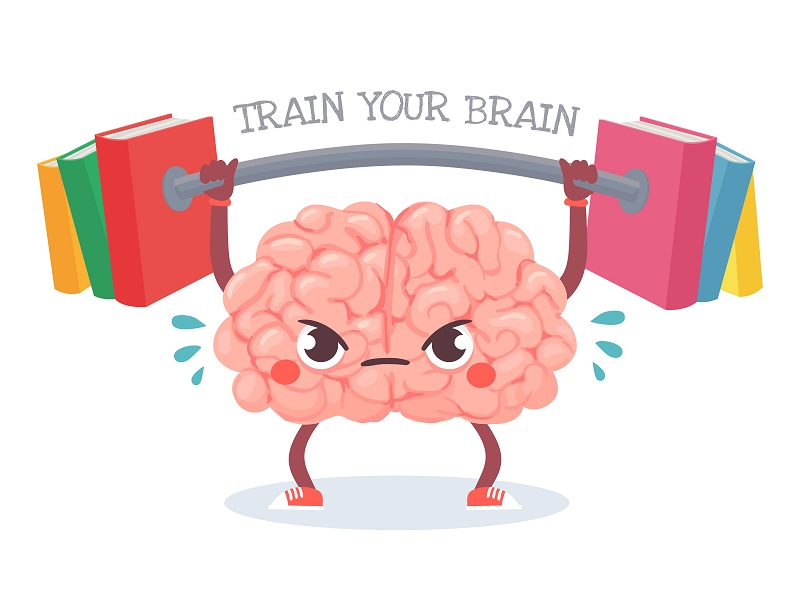
Maintaining brain health and emotional well-being is crucial for a balanced, fulfilling life. While mental exercises like puzzles and reading can stimulate the mind, physical exercises are equally vital. Regular physical activity boosts cognitive function, enhances mood, and helps manage stress. Here are some simple exercises that can improve both brain health and emotional well-being.
1. Aerobic Exercises for Cognitive Function Aerobic exercises, such as brisk walking, running, cycling, and swimming, have been shown to enhance cognitive function by increasing blood flow to the brain. This increased blood flow delivers oxygen and nutrients, which support brain cell growth and improve memory and learning. Studies have found that regular aerobic exercise can also lead to the growth of the hippocampus, the part of the brain responsible for memory.
These exercises are not only beneficial for cognitive health but also release endorphins, the body's natural mood lifters. This helps reduce symptoms of anxiety and depression, promoting overall emotional well-being. Incorporating at least 30 minutes of aerobic activity into your daily routine can make a significant difference in brain health. Brain Balance supports the idea that physical activity can effectively boost both mental and emotional well-being, encouraging regular exercise as part of a healthy routine.
2. Mindful Yoga and Meditation Yoga and meditation are excellent for enhancing mental clarity and emotional stability. Yoga combines physical postures with controlled breathing, which helps reduce stress and improves focus. Regular practice can lead to greater self-awareness and better emotional regulation, making it easier to handle daily stressors.
Meditation, on the other hand, trains the brain to focus and be present. Even short sessions of mindful meditation can help reduce anxiety and improve concentration. Studies have shown that meditation can increase the thickness of the prefrontal cortex, the area of the brain associated with decision-making, emotional control, and awareness. By including yoga and meditation in your routine, you can boost your cognitive function and emotional resilience.
3. Strength Training for a Sharper Mind Strength training, often overlooked when considering brain health, can be a powerful tool for cognitive enhancement. Lifting weights or using resistance bands not only strengthens muscles but also stimulates the brain. Strength training has been linked to improved memory and executive functions, which include skills such as planning, problem-solving, and multitasking.
Additionally, engaging in strength exercises can help release neurotransmitters like dopamine and serotonin, which regulate mood and promote a sense of well-being. Simple strength exercises, such as squats, lunges, and push-ups, can be done at home without the need for special equipment, making it easy to integrate them into your fitness routine.
4. Dance for Cognitive Flexibility Dancing is a fun and effective way to enhance brain health. It combines physical movement with music, which stimulates multiple areas of the brain simultaneously. Learning new dance routines or moves challenges the brain to create new neural pathways, improving cognitive flexibility and memory.
Moreover, dancing with others encourages social interaction, which is another crucial component of emotional well-being. Whether it’s salsa, ballroom, or even a simple dance class at home, dancing can be a great way to keep the brain sharp and boost mood.
5. Tai Chi for Stress Reduction Tai Chi, a form of martial art that emphasizes slow, deliberate movements and deep breathing, is effective for reducing stress and improving mental clarity. The focus required to perform Tai Chi movements helps calm the mind, making it an excellent exercise for those looking to enhance emotional well-being.
Research suggests that regular practice of Tai Chi can improve executive function, attention, and working memory. Its meditative movements can also help lower cortisol levels, the hormone associated with stress, which promotes a more relaxed state of mind. Practicing Tai Chi a few times a week can lead to noticeable improvements in mental and emotional health.
Regular exercise is a key factor in supporting both cognitive function and emotional well-being. By staying active, individuals can boost their mental clarity, reduce stress, and improve their overall mood. Incorporating simple, consistent physical activity into daily life can lead to lasting benefits for both the mind and body, helping to maintain a balanced and healthy lifestyle.